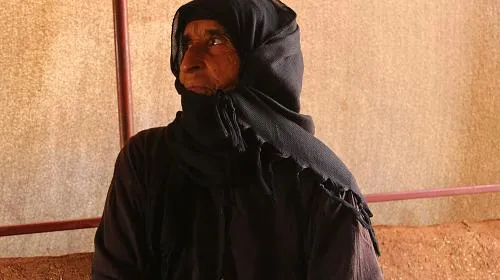AMMAN (October 16, 2019) – The Syria INGO Regional Forum (SIRF), comprising 73 international humanitarian organizations responding to the Syria crisis, including CARE, expressed deep concern at the rapidly deteriorating humanitarian situation since Turkey’s military operation started on October 09th. The United Nations (UN) estimates that more than 200,000 people have been displaced, and has adapted prior displacement planning figures to include up to 400,000 people that will require assistance and protection in the coming period. Over three days Hasakeh city saw an estimated 60,000 new arrivals as a result of the violence, while hostilities in the area also damaged the main water station, leaving it out of service. 400,000 people, including 82,000 people in Al Hol and Areesha camps, now rely on the provisional solution of pumping water from a nearby dam that can only meet 50% of the needs and provides poor water quality. A lack of clean water exposes the population to outbreaks of infectious diseases, especially as acute diarrhea and typhoid were already two of the most reported diseases in the northeast in August 2019.
To date, the most intense attacks have been on Tal Abyad, Ras al Ain and Quamishly. The use of air strikes and artillery in those areas and the October 13th attack on a convoy of civilians fleeing Tal Abyad raise serious concerns related to the targeting of civilians, which would be a flagrant breach of international humanitarian law. In general, the use of explosive weapons in populated areas has led to mass forced displacement and disproportionate damage to vital infrastructure. With the recently renovated hospital in Ras al Ain again out of service and three healthcare providers in Tal Abyad rendered non-functional, people in the most affected areas have no access to lifesaving support.
SIRF is concerned that several major humanitarian facilities fall within the 18-mile border area in which Turkey has established a growing military presence, such as Mabrouka camp (which had 3,170 residents) and Ain Issa camp (12,901 residents). Mabrouka camp has largely been evacuated and is no longer accessible. The majority of its residents relocated to Areesha camp, but several families were unable to leave and now have no access to food, water or shelter.
While the need for humanitarian aid has dramatically increased, the incursion has forced many international aid agencies to suspend service delivery and evacuate international staff. In the last days, SIRF members lost access to their office in Ain Issa, about 31 miles from the Turkey-Syria border, after the town came under the control of Turkish-backed NSAGs. National staff fears for their lives and the lives of their families as they are unable to seek safety in government-controlled areas inside Syria or in neighboring countries. Humanitarian organizations report widespread displacement of national staff, as well as concerns about increased restrictions on their freedom of movement due to risk of conscription.
With humanitarian access already compromised, any further sudden shifts of control or shifts in the presence of troops could further destabilize the area and the safe routes that humanitarian organizations currently rely on to reach people in need. In light of the recently announced political agreement between Kurdish authorities and the government of Syria, we call on relevant authorities to make continued access to humanitarian organizations a priority.
The people of northeast Syria have already endured years of conflict, with many being repeatedly displaced, and have suffered unimaginable physical and psychological distress. SIRF is very concerned that many of these civilians are now forced to flee south and may have to seek refuge in areas that are heavily contaminated with explosive ordnance. Areas that saw conflict when Islamic State was defeated, like Raqqa, are littered with improvised explosive devices and landmines.
The Syria INGO Regional Forum is also concerned about statements from the Turkish authorities that one of the objectives of the military operation is to establish a zone to where they will seek to return refugees. SIRF notes that most of the refugees in Turkey do not originate from areas Turkey is seeking to control, and reminds Turkey of its obligation to the respect the principle of non-refoulement.
SIRF believes that urgent action is needed and calls:
- all parties to the conflict to fulfill their obligations under international law and international humanitarian law and refrain from targeting civilians and humanitarian workers, as well as exercising restraint in order to protect water supplies, health facilities, schools and camps for displaced people;
- for a halt to the military operations and urgent dialogue between the conflict parties, supported by the international community;
- all parties to the conflict to stop the use of explosive weapons with wide area effects in populated areas;
- all parties to the conflict and the international community to ensure that freedom of movement and humanitarian access are guaranteed;
- all parties to investigate possible violations of international humanitarian law, especially attacks against civilians, and civilian infrastructure, and ensure those responsible are held to account;
- the application of the UN Security Council Resolution 2165 to facilitate the provision of humanitarian aid in northeast Syria;
- signatories to the Arms Trade Treaty to follow Germany, Norway, Finland and the Netherlands and suspend licenses for the transfer of arms to Turkey, as per the object and purpose of the Treaty;
- donor governments to be ready to provide the required level of emergency funding and assist humanitarian actors to respond effectively.
Media Contacts:
Vanessa Parra, vanessa.parra@care.org, +1 917-525-0590 (NYC)
Mahmoud Shabeeb, mshabeeb@care.org, +962 79 146 39 03 (Amman, Jordan)

